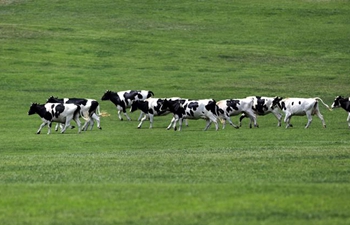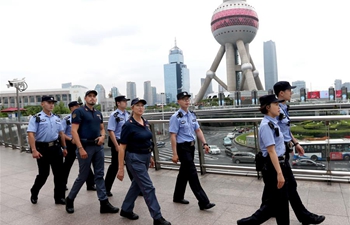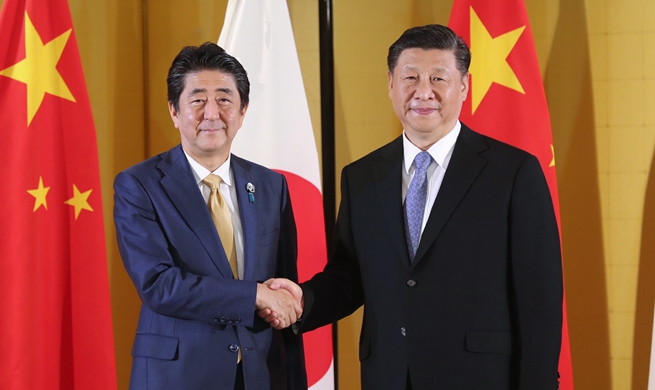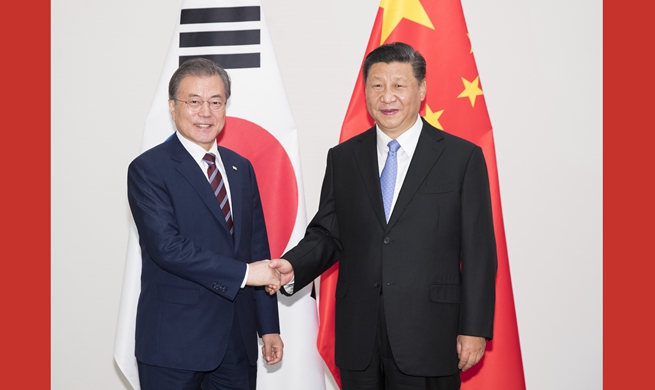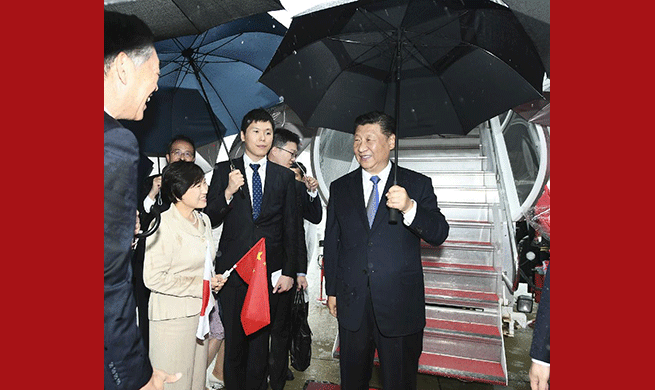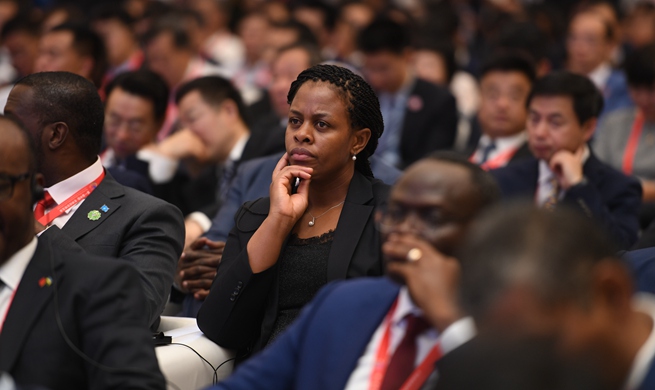by Burak Akinci
ANKARA, June 27 (Xinhua) -- After Sunday's rerun elections for Istanbul mayor, the Turkish government is urged to focus on immediate economic issues, a core factor of the defeat to President Recep Tayyip Erdogan's party.
The outcome of the polls saw the clear win of opposition candidate Ekrem Imamoglu in the country's largest city and economic hub after months of campaigning and controversy.
Elections removed a main source of political uncertainty and market players hope that the government would now shift its attention to economic reforms.
Erdogan already announced that he will now focus on matters of foreign policy and economy. He has a busy schedule ahead for economic diplomacy as he is traveling to Osaka, Japan for the G20 summit, and then to China to promote bilateral ties.
Erdogan and U.S. President Donald Trump are set to meet in Osaka on June 29 and 30, to discuss NATO member Turkey's Russian S-400 purchase and the threat of U.S. sanctions.
Investors have held hopes that the leaders can find out a solution despite Ankara's repeated assertions that it will accept the delivery of the defense systems and avoid looming U.S. sanctions.
"The fact that the (Istanbul) polls are now over is an important parameter, while other risks such as the S-400 issue still remain. Nevertheless, the government appears ready on tackling urgent economic agenda," Enver Erkan, an economist at GCM Yatirim, told Xinhua.
"What is essential now is to dwell effectively on the question of decreasing high inflation and unemployment rate and also put out the fire in the households kitchen," the expert pointed out, referring to rising food prices which made Turks suffer since the beginning of the year.
This factor was seen as one of the reasons of Erdogan winning popular support in the March local elections and subsequently in losing Istanbul.
"Giving full attention to economic reforms is a must. Turkey has the potential of continuing in the path of economic growth by getting rid of (external) risks," indicated Erkan.
Markets have reacted positively to the end of the election uncertainty as the Turkish lira gained nearly 2 percent against the U.S. dollar and stocks and bonds also rallied.
When the March 31 vote was scrapped in Istanbul on the basis of irregularities, investors questioned the integrity of Turkey's democratic institutions and wondered whether the months of additional campaigning would distract the country from needed economic reforms.
Through the course of a 16-year run as Turkey's leader, Erdogan has carried on his promises of potent economic growth until a currency meltdown last year followed by the first recession in a decade.
The immediate result is inflation running at an annual rate of about 19 percent, besieging ordinary people and companies alike. The official unemployment rate exceeds 14 percent.
Some experts believe that Turkey's economic hardships are the results of bad management over the years which have made it reel under rising debt and they would not be resolved overnight despite a little relief could be expected in some indicators, such as inflation, in the coming months.
"Instead of identifying and addressing the problems, President Erdogan and his government prefers to blame external powers of disrupting the economy. In this regard, I am not very optimistic on the chances of solving the real problems," Yalcin Karatepe, a professor of economics at Ankara's political studies faculty told Xinhua.
Erdogan has repeatedly blamed speculators and foreign powers for sinking the country's economy, a rhetoric he reiterated once again on Tuesday during a speech in parliament.






